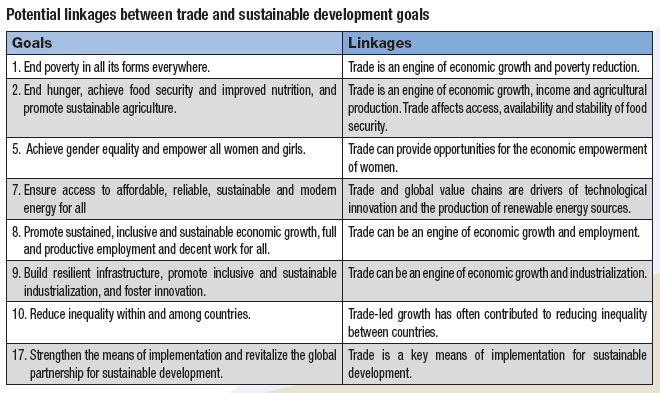News
Non-tariff measures and Sustainable Development Goals: Direct and indirect linkages

The Sustainable Development Goals have multiple and vital linkages to “non-tariff measures”, says UNCTAD in its latest Policy Brief. These non-tariff measures include regulatory policies to protect the environment and human, animal and plant life as well as non-trade barriers that have an effect on developing countries’ poverty reduction opportunities.
A new UNCTAD Policy Brief argues that the proliferation of non-tariff measures plays a crucial role in shaping global trade patterns and their sustainability.
Non-tariff measures are defined as policy measures – other than ordinary customs tariffs – that can have an economic effect on international trade. They thus include a wide array of policies. Some are traditional instruments of trade policy, such as quotas or trade defence measures. These measures are often termed non-tariff barriers because of their unequivocally discriminatory and protective nature. However, the distinctly neutral definition of non-tariff measures does not imply a direction of impact or a judgement about the legitimacy of a measure.
To understand how non-tariff measures interact with sustainable development, it is helpful to distinguish between indirect and direct linkages.
Indirect linkage means that non-tariff measures influence trade. In turn, trade can foster economic development and spill over to sustainable development.
Direct linkages refer to policies that have an immediate effect on sustainability. While many policies primarily aim at protecting health or the environment, they also have an impact on trade and are therefore considered non-tariff measures.

Key points:
-
Trade leads to economic development; trade policy can ensure sustainability.
-
Many non-tariff measures are much more than trade policy instruments – they are sustainable development policies.
-
Some costs of non-tariff measures can be reduced without compromising policy objectives.
-
Regulatory convergence with respect to NTMs is paramount.
-
Nations need to work together in the multilateral system and the United Nations to achieve regulatory convergence.




